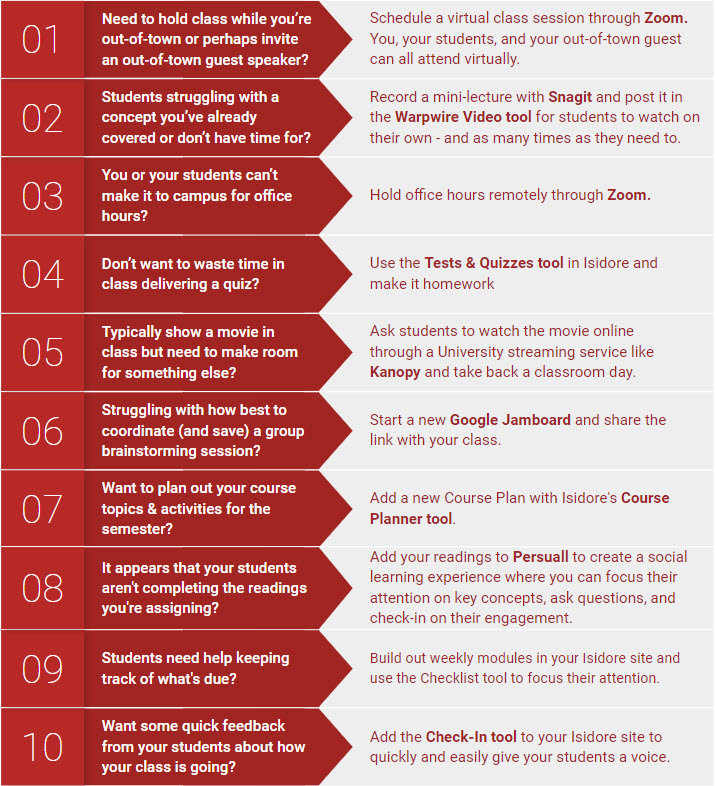Blogs

The Silver Lining of Teaching in the Pandemic
By Ryan Allen
The pandemic has really forced the hand of everyone in higher ed. The standard ways of operating were taken from us. Stolen! It seemingly happened overnight, without any warning. We can no longer simply walk into a classroom, turn on the projector, and pull out the Expo markers while waiting for the students to file in. The typical classroom teaching experience, as we've known it, is no longer, well … the norm (at least for now). The new normal is being defined around us (and with us) on a daily basis, but one thing is for sure – we're all adapting in one form or another. We've prepared our classes in new ways, learned new technologies, shifted plans on a dime, and altered our approaches and expectations in order to meet the needs of our students.
Whether we realize it or not, the good news is that a lot of this will pay off for years to come in ways that we may not see or appreciate just yet.
I think it's important Upfront to say how impressive you've been over the last eight months despite the challenges you've faced. The amount of hard work, problem-solving, and flexibility that have become commonplace since March is genuinely commendable. You moved your courses online in the middle of a term with 10 days' notice. You spent the summer gearing up like never before for "flexible" classroom teaching only to have your courses forced online 15 hours before the first day. You then re-entered the new classroom six weeks into the term to deliver courses simultaneously to in-person and remote students. As crazy as that might sound, if you were explaining it to your 2019-self, none of it would adequately convey the complexity of every decision and change you've had to make on a daily basis since March. And that's not to mention, you know, the pandemic itself and the myriad of ways in which it has taxed our family, friends, and our own mental health.
The pandemic will fade into the background at some point. We will get back to a more standard class experience in many ways. Still, we're all going to arrive at that destination with a lot more tools and knowledge to draw on than we had before. Your days right now likely seem full of endless Zoom calls, online grading, mountains of email, and Isidore interactions from the isolation of your home, and you can’t wait to leave this all behind. The feeling of being burnt out is more real than ever.
But let’s imagine for a second how the new skills you've gained and the adaptability you've embraced will benefit you in the post-pandemic world.

I'm sure you can think of many more examples and were likely already using some of these practices pre-pandemic, but one thing is for sure – you know them better now (out of necessity) than you ever did before. You also wouldn't need to think twice about accomplishing any of these tasks in the future. You'd just do them . . . instinctively. The thought of holding online office hours through Zoom may have never occurred to you or seemed too cumbersome in the past. Now it just makes sense in many situations – and likely expands access for all students. Creating a video lecture may have seemed complicated and not worth the effort before the pandemic. Now you know how easy Snagit is to use.
They say the best way to learn something new is to try it. Well, you've no doubt tried a lot of things. Many of them might not have worked as you intended, and you'd never do them again. That's OK. It's still useful information to carry forward with you in the future.
None of this is to say that online approaches are superior or that we're happy about the pandemic and how it has changed our lives in 2020. We all want to put it and the pain and stress it has caused in the rear-view mirror. Like it or not though, you've learned a lot over the last eight months that will benefit your teaching and student learning for years to come. That's never a bad thing - even if the conditions that necessitated the learning were.
Check out the links below for documentation about the tools mentioned above if you're interested in mastering something new. As always, you are welcome to reach out to the Office of eLearning with questions or for training or assistance at elearning@udayton.edu.
